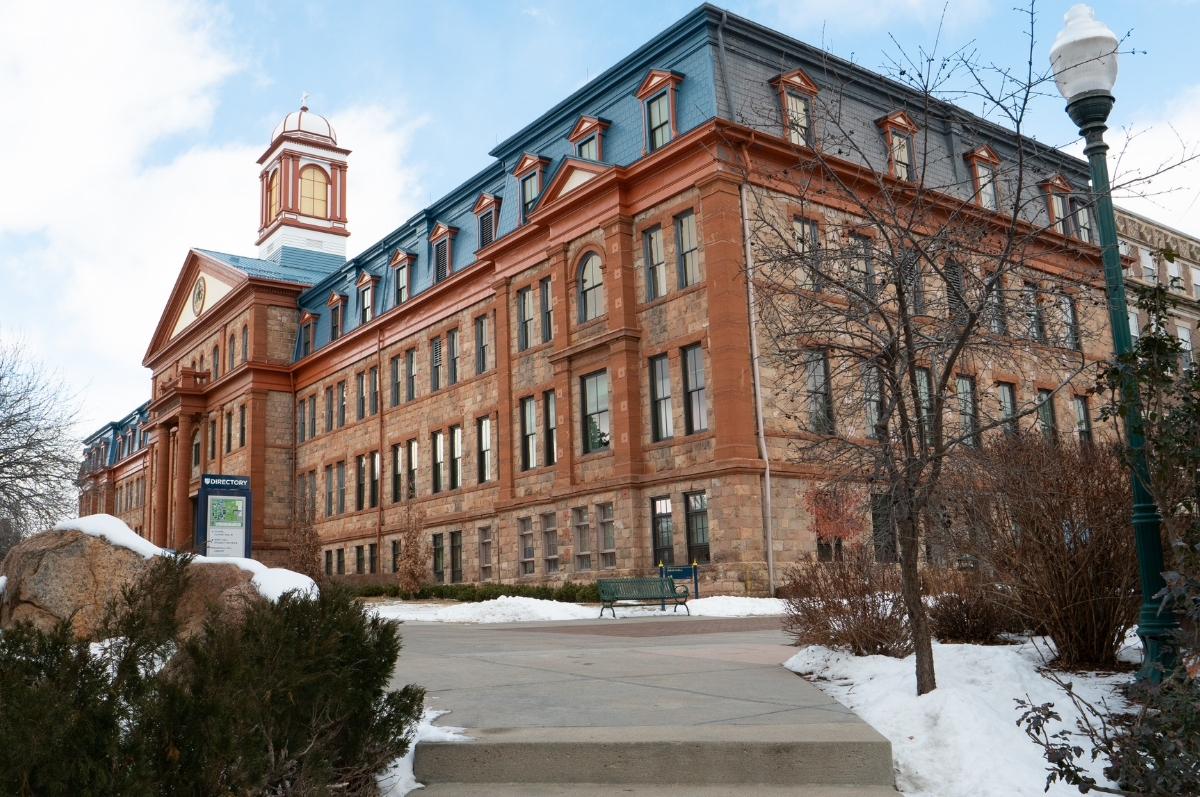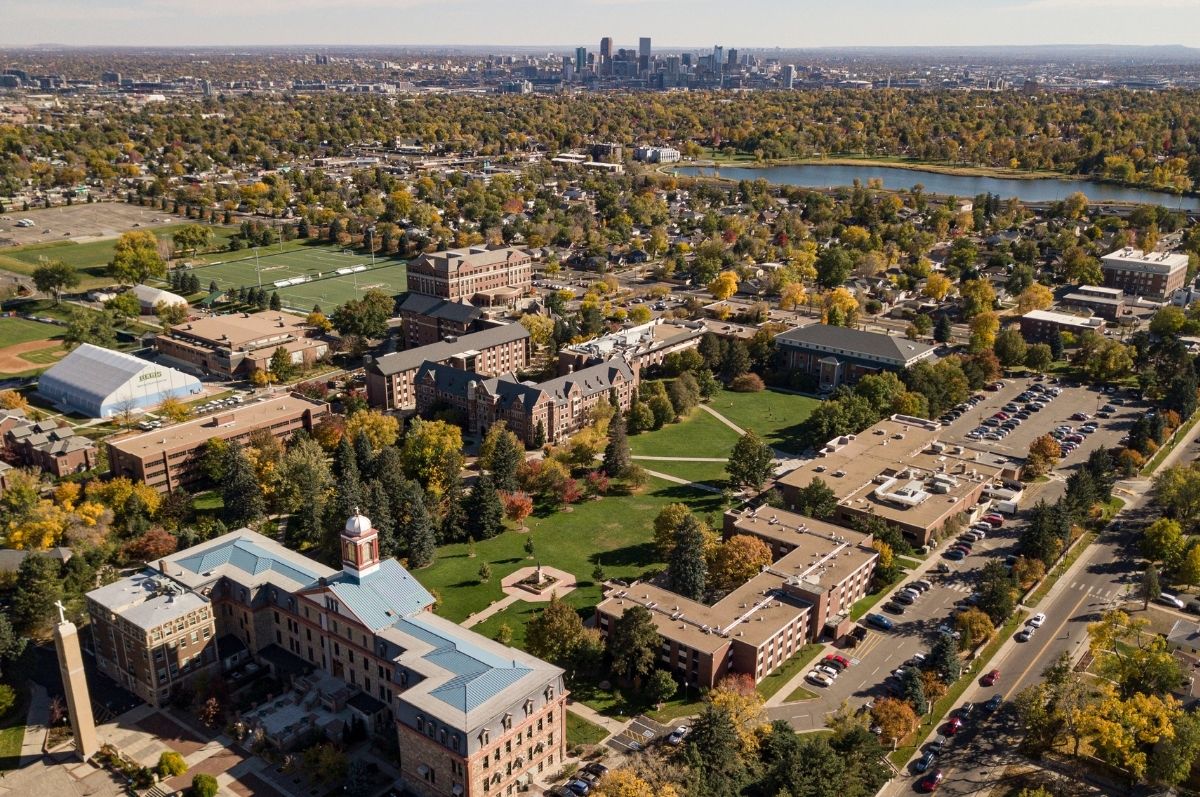Finding Purpose in Service: Regis University's Guatemala Medical Service Program
In a community built beside a landfill in Cobán, Guatemala, where indigenous Mayan families live in makeshift homes with dirt floors, Regis University students and alumni are learning what medicine practiced with compassion truly means.
"Guatemala is what gets me out of bed every day," said Dr. Lauri Pramuk, M.D., alumna and the physician who leads Regis University's annual medical service trip to Guatemala. "It's pretty easy to get burned out as a healthcare provider, especially in our current culture and coming out of COVID. Most of my colleagues that I trained with are pretty burned out on medicine. I think without the Guatemala program, I would be too."
Now in its fifth year at Regis, the program represents more than a weeklong service experience — it embodies the university's Jesuit mission of developing men and women in service for and with others.
A Journey of Compassion
The program began in 2020 when Dr. Pramuk, who had previously participated in similar trips through Xavier University for eight years, approached Regis College about continuing her work. With support from then-Regis College Dean, Tom Bowie, Ph.D., who "understood my vision and backed it," Dr. Pramuk established a new partnership with Ciudad de la Esperanza (City of Hope), a community center and school founded in 2003 by local priest, Padre Sergio Godoy.
Ciudad de la Esperanza serves approximately 400 students and supports about 2,000 families who live near the landfill outside Cobán. These indigenous Mayan families face severe marginalization in Guatemala's social hierarchy.
"The more indigenous you are, the less recognized you are by the government," Dr. Pramuk explains. "These are families who are very marginal, who didn't have access to educate their children because of their indigenous status. They didn't have access to healthcare, just basic services."
The first Regis trip in March of 2020 coincided with the establishment of a primary care clinic at Ciudad de la Esperanza and narrowly preceded the global COVID-19 pandemic. "We flew out of Guatemala a day before the world locked down," Dr. Pramuk recalls.
Beyond a One-Week Immersion
What distinguishes this program from typical medical programs is its year-round commitment to the community. Through fundraising efforts, the team secured the services of Dr. Ricardo Valdez Perez, M.D., a Guatemalan physician who maintains the clinic throughout the year.
"It doesn't help a lot when a medical team is only there one week out of the year when people get sick all year round," Dr. Pramuk notes. With Dr. Valdez Perez as "the stable base," the team can identify patients with special needs who might benefit from medications or therapies during the annual visits, while maintaining continuity of care throughout the year.
The program expanded further in 2024 through a partnership with Project Cure, a Colorado nonprofit that repurposes donated medical equipment worldwide. After raising $30,000 to ship a pod containing approximately $500,000 worth of medical equipment, the team not only equipped their clinic but extended support to other healthcare facilities in the region through the Ministry of Health.
The Regis Family Grows
Perhaps the most moving aspect of the program is how it creates lasting connections. What began as a student experience has evolved into a multigenerational family of healthcare providers united by their commitment to this community.
Take Ricky Perez, who participated in the inaugural Regis trip in 2020 as an undergraduate biology major. He has since served as a trip coordinator, lived in Guatemala for nine months, completed his master's in biosciences at Regis, and is now entering the university's accelerated nursing program.
His mother, Mary Moliner, who grew up in rural Mexico, was so moved by her son's experience that she joined subsequent trips as an interpreter, eventually becoming a certified nursing assistant.
Other alumni like Christian Alegria, who first participated as an undergraduate in 2012 on the Xavier University trip, returned years later as a dentist. Monse Pineda Lagunas, who went on the first trip as a nursing student, now works as an operating room nurse at Children's Hospital in Denver and continues to co-coordinate trips with Ricky Perez.
"We are just a big family," Dr. Pramuk said. "There's still students from Xavier that I took 10 years ago who are part of this program and support it financially and can't wait for the next alumni trip to go as they're now doctors and nurses and dentists. The Guatemala family kind of stays together."
Medicine as It Should Be Done
For Dr. Pramuk and her colleagues, including longtime team member Dr. Richard Walter, M.D., an internist from Los Angeles who has participated since the program's inception at Xavier, the Guatemala trips represent "medicine as it should be done."
Unlike the siloed approach common in U.S. healthcare, the team practices collaborative, holistic care. "I will sometimes interview a child while we're in the PT room with Deb [the physical therapist] because I need to see how the kid moves and see what she's going to do to help with mobility while I'm talking about their situation or their eating habits," Dr. Pramuk explains.
The program also serves as an interfaith experience, with Jewish team members including Dr. Walter conducting Shabbat dinner with the clinic in Spanish and English on the final Friday of each trip.
Confronting Unique Challenges
The medical challenges in Guatemala differ dramatically from those in the United States. Dr. Pramuk regularly encounters conditions she's never seen at home, from "mala de ojo" (evil eye), beliefs that require education about germ theory to genetic disorders resulting from limited gene pools in isolated indigenous communities.
Many children suffer from conditions that would be prevented or treated early in the United States. Dr. Pramuk describes treating a 14-year-old with congenital hypothyroidism that wasn't diagnosed until age two, resulting in profound developmental delays — a condition called cretinism — that's practically unheard of in American medical practice due to newborn screening.
"There are things that I encounter every year that I never have encountered in the United States," she said.
Finding Hope in Resilience
Despite these challenges, Dr. Pramuk finds profound inspiration in the Guatemalan people.
"They deal with hardships that are unimaginable every day, but they have found joy and happiness and collaboration and community," she said. "We're always inspired by their resilience and their deep faith and gratitude, even though many of these people have almost nothing in terms of material resources."
This inspiration renews her sense of purpose in medicine each year. "Guatemala for me, every year, this trip is a reset button, and it reminds me why I decided to go into medicine in the first place."
For students considering the program, it's not about resume-building or academic credit. When asked if participants wanted the experience to count toward course credit, "universally, we've gotten their answer to be no," Dr. Pramuk said. Instead, they're seeking something deeper — what Dr. Walter calls "scuba diving" rather than "snorkeling" through life.
As the program enters its sixth year at Regis, it continues to exemplify the university's commitment to developing healthcare professionals who serve with compassion and cultural understanding. For the students, alumni, and healthcare providers involved, the Guatemala medical mission is more than a service trip — it's a transformative journey that shapes their approach to medicine and their understanding of what it means to serve others.
Each April, 10 to 14 students and faculty supervisors from the RHCHP Global Health Pathway program travel to Guatemala to provide health services in La Ciudad. You can learn more about the program here: https://www.regis.edu/academics/colleges-and-schools/rueckert-hartman/global-health-pathway
To learn more about the Guatemala service trip, visit here: https://www.rubuildingcapacity.com/



